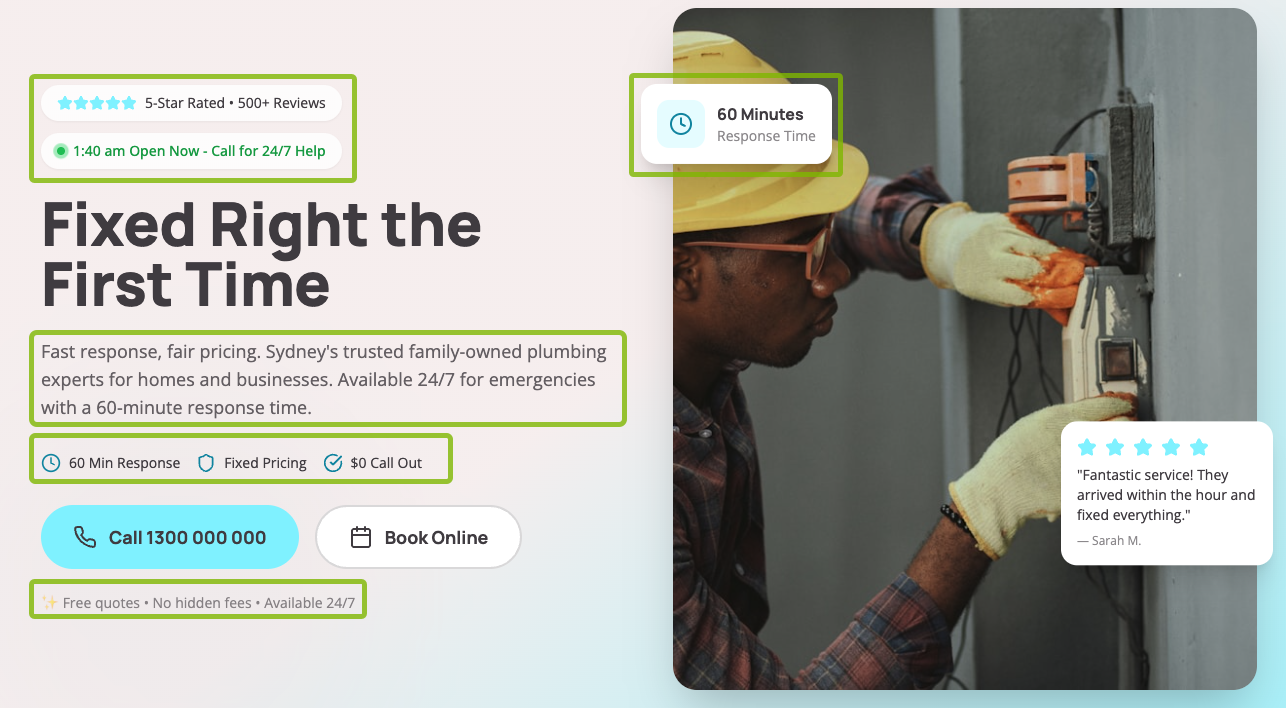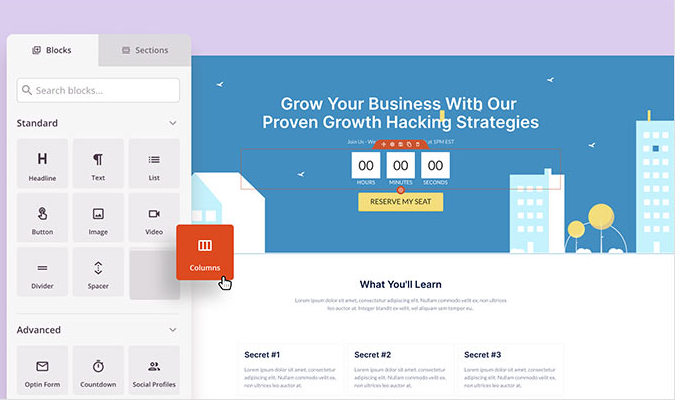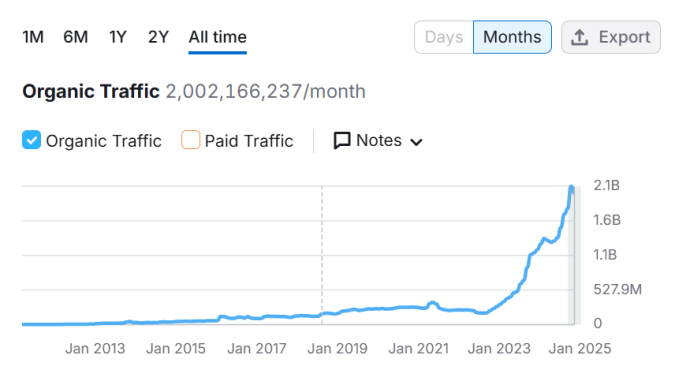Namecheap and GoDaddy offer many of the same core services—domain registration, web hosting, security add-ons, email, and marketing tools—so the right choice often comes down to value, support, and how much upselling you’re willing to tolerate.
Namecheap consistently competes on affordability across domains and hosting. GoDaddy typically costs more overall but pairs that with broader tooling and stronger hands-on support. Both include domain privacy protection with eligible TLDs at no extra cost.
Below, we compare what matters beyond domains—day-to-day ease of use, hosting options, performance, support, and where each brand does (and doesn’t) deliver.

Namecheap and GoDaddy Compared to the Best Web Hosting Services
Neither brand made our list of the best web hosting services. They’re fine for basic sites, but there are stronger values and more performance-focused hosts for most people.
Both companies also spread their attention across many products. That breadth can be convenient, but it sometimes slows improvements to core hosting.
Hostinger remains our favorite budget host for most users thanks to generous site limits, easy WordPress tooling, bundled SSL, and a beginner-friendly builder.
If you want the smoothest WordPress setup, Bluehost makes onboarding especially simple with guided installs and starter themes.
For WooCommerce stores, Bluehost now has one of the faster paths to a sellable shop, with store essentials and marketplace integrations built in.
Any of these will be a better fit than Namecheap or GoDaddy for most first-time site builders and small businesses focused on performance per dollar.
Namecheap Compared to GoDaddy
You need the basics—uptime, security, and reasonable speed. But the “extras” often determine long-term fit: how easy a platform is to live with, how it handles growth, and whether support actually solves problems.
Here’s where each brand stands out—and where they fall short.
Namecheap Highlights
Reliability matters. Namecheap backs its shared hosting with at least a 99.9% uptime commitment, and many shared plans now run on 100% cloud storage to reduce downtime. If uptime falls short, you can request compensation. Site migration help is included, which reduces the friction of switching from your current host.
What else you’ll get:
- Low promotional pricing with straightforward renewal rates
- 24/7 live chat support (no phone support)
- Discounted or free domain registration is often bundled with annual hosting promos
- WordPress-friendly management with cPanel access
For tight budgets, Namecheap’s entry plans are hard to beat on features-per-dollar. There’s also a 30-day money-back guarantee if you want to test the waters.
GoDaddy Highlights
Brand recognition aside, GoDaddy wins for approachability. New users can get a presentable site live quickly, and the interface stays friendly as you add products or services. If you need a human, 24/7 phone support is a major plus.
- Competitive introductory promos on many plans
- Automated daily backups on all current hosting tiers
- One-click WordPress setup and a guided site builder
- Built-in payment acceptance via GoDaddy Payments
- 99.9% uptime commitment
Global data centers help with load times for international audiences, and the bundled tooling (DNS, email, builder, payments) keeps everything under one roof.
Namecheap vs. GoDaddy: Pros and Cons
We continually evaluate hosting providers across pricing, features, performance, and support. Here’s how these two stack up today.
Where Namecheap Shines

Pricing value: Namecheap’s entry tiers include more than you’d expect for the money, and renewals are typically easier to swallow than comparable GoDaddy plans.
For a deeper look, see our full Namecheap review.
Included extras: WHOIS privacy and at least one domain-based email address are commonly included where competitors (including GoDaddy on certain TLDs or plans) may charge. :
Range of hosting types: Beyond shared hosting, Namecheap offers WordPress (EasyWP), reseller, VPS, and dedicated servers—making it easier to scale without switching providers.
Beginner-friendly migrations: Moving from another host is free and straightforward. Documentation and tutorials are plentiful if you’d rather DIY.

Long track record: Namecheap started as a domain registrar more than two decades ago and now manages millions of domains. That stability matters when you’re trusting a provider with your site and DNS.
EasyWP managed WordPress: If you’re running WordPress, EasyWP offers quick installs, built-in caching, simple backups, and performance that beats typical entry-level shared hosting.
Fast, guaranteed migrations: Namecheap aims to migrate your site with minimal downtime and backs the experience with a strong satisfaction guarantee—rare at this price tier.

Affordable dedicated servers: Namecheap’s dedicated lineup is priced aggressively compared with most large hosts, which can make bare-metal more attainable for growing sites.
Where Namecheap Needs Improvement

Limited live support channels: Live chat is available 24/7, but there’s still no phone support. Complex issues sometimes take longer to resolve than with GoDaddy’s phone-first model.
Basic site-building tools: Namecheap’s AI website builder and Sitejet options are solid for small sites, but they still lag behind the best dedicated site builders or the custom WordPress tooling you get from premium hosts.
Security add-ons: SSL is included, but advanced malware scanning and remediation typically require extra tools or third-party services. Beginners may prefer an all-in-one security bundle.
Where GoDaddy Shines

Very easy to use: From signup to launch, GoDaddy keeps things straightforward. The guided builder, WordPress installer, and domain tools make it simple to get online quickly.
Strong introductory promos: First-term pricing can be compelling across hosting and add-ons, and bundling a free first-year domain is common on many plans.
Responsive support: 24/7 phone support plus an extensive help center, tutorials, and chat options make it easier to get unstuck, especially if you’re new to hosting.

Scale-ready options: GoDaddy covers shared, WordPress, ecommerce, VPS (managed and self-managed), and dedicated servers, so you can upgrade as traffic grows without leaving the ecosystem.
Bandwidth and performance: Unmetered bandwidth on most plans and multiple global data centers help deliver fast load times when traffic spikes—subject to the usual fair-use policies.
Integrated payments: GoDaddy Payments lets you accept major cards on WordPress without juggling a separate gateway. Pricing is a flat per-transaction rate with no monthly fees.

Backups and security: Automated daily backups are included on all current web hosting tiers. You’ll also get SSL, DDoS protection, spam and fraud safeguards, and password-protected directories.
Managed WooCommerce hosting: Plans include store essentials like unlimited products, abandoned cart emails, and marketplace integrations. It’s a faster path to a sellable shop than piecing together plugins.
Where GoDaddy Needs Improvement

Heavy upsells: Expect frequent prompts to add services or upgrade tiers during checkout and inside the dashboard. Always review your cart to avoid extras you didn’t intend to buy.
Higher long-term costs: Renewal prices jump more than many competitors. Budget carefully for year two and beyond.
Paid add-ons for “basics” on some plans: Depending on the TLD or hosting tier, you may pay extra for items like additional email mailboxes or advanced security that competitors include.
Marketplace order caps on certain ecommerce tiers: If marketplace sales are central to your business, check the monthly order limits on specific WooCommerce plans before you commit.
Expanding Your Knowledge: Namecheap vs. GoDaddy
Namecheap is better than GoDaddy for registering domain names because of its value and security features. Namecheap also has friendly and knowledgeable customer support available 24/7, and you’ll get WHOIS privacy protection for free when you register a domain name with Namecheap.
While GoDaddy is still a reputable and reliable platform for purchasing a domain, it did not make our list of the best domain registrars—and Namecheap did.
Namecheap is better than GoDaddy if you’re looking for a cheap hosting provider. GoDaddy offers better support and has a slight edge in performance, but its web hosting plans are more expensive than Namecheap.
Neither Namecheap nor GoDaddy made our list of the best web hosting providers. So while you can’t necessarily go wrong by using Namecheap or GoDaddy, it’s worth noting that there are better alternatives on the market for most websites.
Namecheap is cheaper than GoDaddy for web hosting and domain registration over time. GoDaddy sometimes runs headline .com promos for $0.01 for the first year when you commit to a multi-year term, but those renew at higher rates than Namecheap in most cases.
GoDaddy also has significant price jumps for web hosting plans and domain registration after your promotional period ends. Namecheap’s prices jump upon renewal as well. But the increases aren’t as high as GoDaddy, and Namecheap doesn’t try to upsell you as much as GoDaddy either.
GoDaddy is more popular than Namecheap, and it has a more versatile product offering. Namecheap is a great option for domain registration and cheap web hosting, but GoDaddy has a better website builder, and it’s easier to use. GoDaddy also has better customer support than Namecheap.
Beyond a few subtle differences, Namecheap and GoDaddy are very similar. They’re both reputable and reliable options for domain registration, web hosting, and other web services.
The Last Word on Namecheap Compared to GoDaddy
GoDaddy and Namecheap find themselves in a highly competitive market with other web hosting providers. Both of them offer reasonable price points versus their competitors, and they both are among the longest-running hosting services providers.
Those who use GoDaddy appreciate its ease of use, as even novices can begin using it quickly. GoDaddy offers reasonable introductory prices, but you will see significant price increases once the intro period ends. Namecheap maintains its highly desirable price points versus competitors both at the time of signup and well into the future. But it sacrifices customer support performance to give you the below-average pricing options.
If you want to research more options in this market, our researchers provide the information you need in our list of the best website hosting services. We like Hostinger as the best hosting service for most people, but there are quite a few strong options that may better fit your particular needs on our list.






